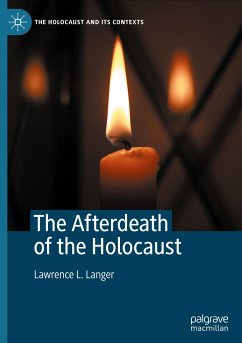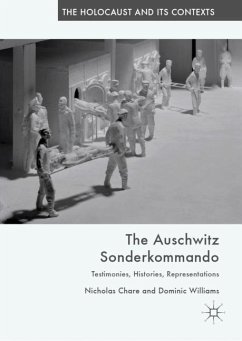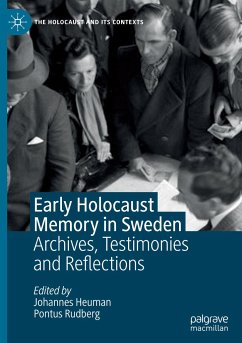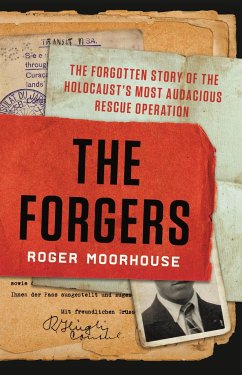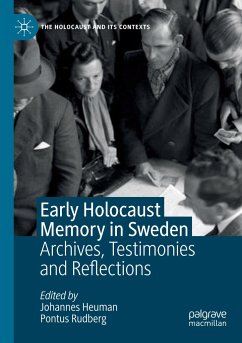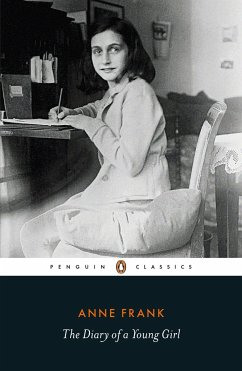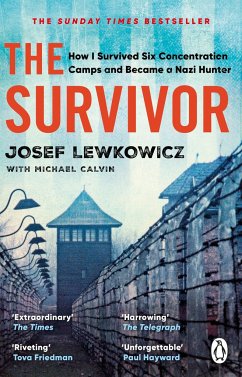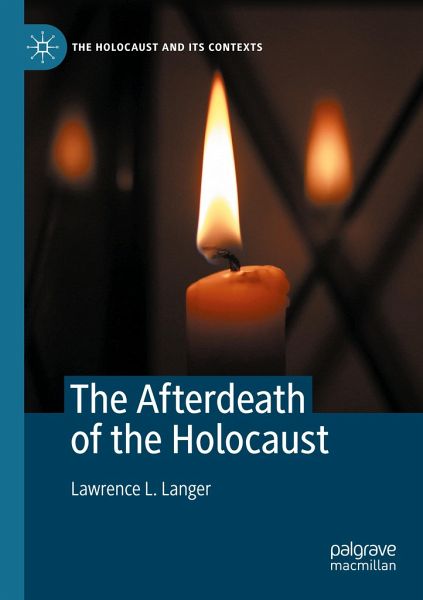
The Afterdeath of the Holocaust
Versandkostenfrei!
Versandfertig in 6-10 Tagen
128,39 €
inkl. MwSt.
Weitere Ausgaben:

PAYBACK Punkte
0 °P sammeln!
This book consists of ten essays that examine the ways in which language has been used to evoke what Lawrence L. Langer calls the 'deathscape' and the 'hopescape' of the Holocaust. The chapters in this collection probe the diverse impacts that site visits, memoirs, survivor testimonies, psychological studies, literature and art have on our response to the atrocities committed by the Germans during World War II. Langer also considers the misunderstandings caused by erroneous, embellished and sentimental accounts of the catastrophe, and explores some reasons why they continue to enter public and...
This book consists of ten essays that examine the ways in which language has been used to evoke what Lawrence L. Langer calls the 'deathscape' and the 'hopescape' of the Holocaust. The chapters in this collection probe the diverse impacts that site visits, memoirs, survivor testimonies, psychological studies, literature and art have on our response to the atrocities committed by the Germans during World War II. Langer also considers the misunderstandings caused by erroneous, embellished and sentimental accounts of the catastrophe, and explores some reasons why they continue to enter public and printed discourse with such ease.





